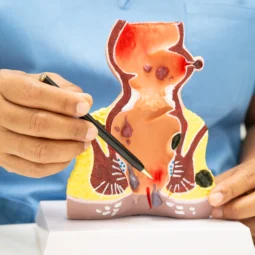
What is tinnitus?
Tinnitus is commonly referred to as “ringing in the ears,” but it may not sound like ringing. Some people hear buzzing, roaring or clicking sounds. So what defines tinnitus is a perception of sound, in the ears or head, when no actual external noise is present.
What causes it?
One of the main causes of tinnitus is hearing loss, typically from noise exposure or aging. There are lots of other causes, though, including:
- Middle-ear conditions
- Impacted ear wax
- Sinus issues
- Head and neck injuries
- Medication side effects
Tinnitus isn’t a disease in and of itself — it’s just a symptom of another underlying health condition, which is why it’s important to discuss it with your health care provider.
Does it come on all at once, or gradually?
For some, it’s sudden, and for others, it starts gradually or comes and goes for many years. The sound quality or intensity also may change over time.
Is it permanent, or does it sometimes go away?
That depends largely on the underlying cause. For many people, it’s a chronic but manageable condition. But if the issue that’s causing it can be treated, it may go away completely.
How is it treated?
There are many approaches to managing and treating tinnitus. No single solution works for everyone — the choice of treatment depends on the cause of the tinnitus. That’s why it’s important to remember: diagnosis first, management and treatment second. Before seeking over-the-counter solutions, see your primary care provider or an ear, nose and throat specialist, and get evaluated by an audiologist.
What do audiologists do for tinnitus?
Audiologists work mainly with patients who have some degree of hearing loss or damage to the auditory system. The treatments we provide for tinnitus, therefore, focus mainly on sound therapy.
Hearing aids can be very helpful — by amplifying the sounds that a person may be missing due to their hearing loss, they can reduce the perception of tinnitus significantly. Many sound generators and maskers are also available — these produce a low-level white noise to cover or distract from the tinnitus. Even though there is no “cure,” tinnitus can be managed very effectively.
OK, how is it pronounced?
Just as there is no single treatment, there is also no single way to pronounce tinnitus. Both ti-NIGHT-us and TINN-a-tus are correct.
Find out more about audiology services at The Portland Clinic.


